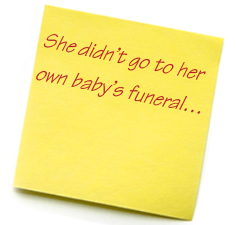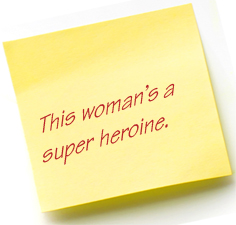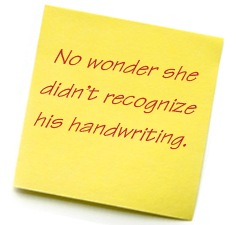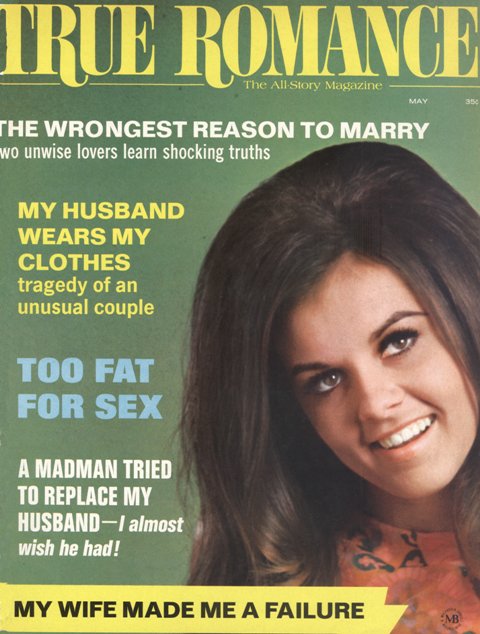
Dateline: May 1970 After three weeks and four days of no word from my husband, Val, in Vietnam—right on top of the mail in my box was an overseas letter. I unlocked the foyer door and ran headlong up the flight of stairs to my apartment, ecstatic with relief. I dumped my grocery sacks and the rest of the mail every-which-way on the daybed and started to tear open that letter.
That's when I noticed the handwriting on the envelope. All the joy just suddenly whooshed right out of me. The writing was stiff and straight up and down—the very opposite of Val's scrawl. The sensible side of me said if he's wounded or anything, the news wouldn't come in an ordinary letter like this. Then I thought to glance at the left-hand corner; Val's name, rank, serial number, and APO address were there, same as usual. I read the letter through three times from the Dear Nita down through the unfamiliar way Val's name was signed. I'd expected some clue as to why it wasn't in his handwriting —that he'd hurt his hand, perhaps, and had to dictate the letter to someone else. But no, it didn't seem to have occurred to my husband that I'd even notice that the writing was different. It wasn't a letter that said very much, but Val's letters had always been brief—not much different from the ones he had started writing to me that summer when we were both sixteen and had just met. That was the summer Val and his folks had come toSanta Monicafor a vacation. At that time my family and I were living in a big old three-story yellow stucco house. The bus stop I used now was right across the street from that house. Every morning while I waited for the bus that took me down the boulevard to the bake shop where I worked, I'd keep looking across at that old house, remembering what good times we Daminos had had there. Until Daddy bought that house for us, my three brothers and my mother and I traveled back and forth across the country almost as much as Dad did. My father was a fine clarinetist, and at one time or another he played with almost all of the great jazz bands. Mother always seemed to enjoy the packing up and moving on, but once in awhile she would start talking about how nice it would be sometime to stay put in a big, roomy house near the ocean. One season, west coast TV jobs piled up on Daddy so fast that we did buy this house in Santa Monica. But it didn't take us long to realize that we'd have to rent out our third floor to meet our payments—and it was Val and his parents who moved in. What with all us Daminos—and our friends, too—being musicians, the Hewletts should probably have thought twice before they signed up to take those rooms for the whole month they planned to vacation in California. Mr. and Mrs. Hewlett took to sleeping mornings, more or less adopting musicians' hours in self-defense. But Val had lived in a little Colorado town all his life, and he didn't want to miss one minute of the ocean. And I didn't want to miss one minute of him. He had reddish-brown hair, was bigger than any of my brothers, and he seemed shy around girls. I'd think nothing of saying to him in an off-handed way something like, "We got an air rifle in trade for some drums. You want to drive out with me and shoot target for awhile?" When Val and I were alone, everything stayed on that good pal basis. We'd play around, ducking each other in the surf, and on some of the walks we took at night, he did take my hand and swing it along with his. But kiss me? No. I didn't know what to think.
 Finally I had this talk with my older brother, Biff, one night when he was shaving before he went out and I was struggling to put on my mascara at the same mirror.
"Biff," I said, "do you think Val likes me?"
My brother took the towel from around his neck and used a corner of it to wipe a spot of mascara off my cheek. "I guess the boy can stand you around, all right."
"No, answer me, Biff," I pleaded. "Val will be gone pretty soon and I'm scared I'll never see him again. If he really liked me, he'd have said something by now, wouldn't he?"
Biff poured shaving lotion into his palms and sloshed it over his face, giving himself time to think before he told me, "Speaking for myself, I'd say the more I like a girl, the harder it is for me to risk making a fool of myself by telling her so. I just play it by ear till she finds some way to let me know how I rate with her."
"Oh Biff!" I wailed, "I've got too much pride for that!"
"What's it got to do with pride?" he demanded. "It's what works, that's all. We don't read you chicks all that easy.
Finally I had this talk with my older brother, Biff, one night when he was shaving before he went out and I was struggling to put on my mascara at the same mirror.
"Biff," I said, "do you think Val likes me?"
My brother took the towel from around his neck and used a corner of it to wipe a spot of mascara off my cheek. "I guess the boy can stand you around, all right."
"No, answer me, Biff," I pleaded. "Val will be gone pretty soon and I'm scared I'll never see him again. If he really liked me, he'd have said something by now, wouldn't he?"
Biff poured shaving lotion into his palms and sloshed it over his face, giving himself time to think before he told me, "Speaking for myself, I'd say the more I like a girl, the harder it is for me to risk making a fool of myself by telling her so. I just play it by ear till she finds some way to let me know how I rate with her."
"Oh Biff!" I wailed, "I've got too much pride for that!"
"What's it got to do with pride?" he demanded. "It's what works, that's all. We don't read you chicks all that easy.  You go hiding your feelings from us—and where does that get anybody. You want a guy to level with you, then the first move is up to you."
I sighed. "I just don't know, Biff. It seems like something I'll never be able to do."
But the next evening I was mooning around putting away the dishes after dinner, and this movie score kept going through my head, sad and expressive. The melody just about told the way I felt toward Val, and I thought, that’s it! I'll play that music for him and he'll catch on to how I feel about him. No words, just music.
I changed into a pale green linen dress, and I sat down at the piano and started feeling around for that melody. Just as it was beginning to sound right, Val came downstairs. Wonderful timing—any place but at our house. I might have known. Right behind him came two of my brothers—Tuck lugging drums and Morgan already soloing off a variation on an old tenor sax somebody had left at our place.
A friend of Dad's, a bass player who'd been having seconds on Mom's Boston cream pie out on our front porch, came on inside and got right with us. Daddy himself was in great lip that night. It turned into a jam session that just wouldn't quit.
Of course it wasn't for Val anymore. He did stick around for awhile, but when I'd glance his way I could tell he didn't feel much at ease with this bunch of musicians. When Val started upstairs I called out, "Val—stay!" but I suppose he couldn't even hear me.
Nobody was thinking about Val's folks that night. It came as a surprise when the Hewletts moved out in the morning.
They were polite about it. All Mrs. Hewlett said was that they'd decided to cut their vacation a little short. That was tactful, but not true. What they really did was to move to a hotel inLos Angeles. I know, because the day afterward I got a letter from Val on that hotel's stationery. Just a few scrawled lines—but how completely my world changed then and there. We never stopped writing after that, and after Val went into the service, he began signing his letters "love."
It was awhile before any of my brothers heard from the draft. Morgan, the youngest, kept talking merchant marine, and almost before we knew it, we Daminos were having this great big heartbreak farewell party to see him off.
The house was really full of people that night, and Mom and I kept as busy as we could, circulating around and passing things so we wouldn't catch each other's eyes and think that this starts to break up the family—Morgan going.
I kept laughing, and at the same time, blinking back tears; I didn't clearly see this one very tall boy in uniform until he stood right in front of me and whispered, "Hey, Nita!" I thrust the antipasto tray at him for fear I'd drop it.
"Val!" I cried, "I don't believe it!"
That brought everyone around to us in a hurry. Daddy kept shaking his head and saying, "Val—I never thought it was you. What'd you do, keep on growing?"
I took the antipasto tray out of Val's hands and started to carry it back out to the kitchen. He followed me out there. He'd changed a lot during those three years, filling out that tall form of his, and getting a man's face instead of a boy's.
You go hiding your feelings from us—and where does that get anybody. You want a guy to level with you, then the first move is up to you."
I sighed. "I just don't know, Biff. It seems like something I'll never be able to do."
But the next evening I was mooning around putting away the dishes after dinner, and this movie score kept going through my head, sad and expressive. The melody just about told the way I felt toward Val, and I thought, that’s it! I'll play that music for him and he'll catch on to how I feel about him. No words, just music.
I changed into a pale green linen dress, and I sat down at the piano and started feeling around for that melody. Just as it was beginning to sound right, Val came downstairs. Wonderful timing—any place but at our house. I might have known. Right behind him came two of my brothers—Tuck lugging drums and Morgan already soloing off a variation on an old tenor sax somebody had left at our place.
A friend of Dad's, a bass player who'd been having seconds on Mom's Boston cream pie out on our front porch, came on inside and got right with us. Daddy himself was in great lip that night. It turned into a jam session that just wouldn't quit.
Of course it wasn't for Val anymore. He did stick around for awhile, but when I'd glance his way I could tell he didn't feel much at ease with this bunch of musicians. When Val started upstairs I called out, "Val—stay!" but I suppose he couldn't even hear me.
Nobody was thinking about Val's folks that night. It came as a surprise when the Hewletts moved out in the morning.
They were polite about it. All Mrs. Hewlett said was that they'd decided to cut their vacation a little short. That was tactful, but not true. What they really did was to move to a hotel inLos Angeles. I know, because the day afterward I got a letter from Val on that hotel's stationery. Just a few scrawled lines—but how completely my world changed then and there. We never stopped writing after that, and after Val went into the service, he began signing his letters "love."
It was awhile before any of my brothers heard from the draft. Morgan, the youngest, kept talking merchant marine, and almost before we knew it, we Daminos were having this great big heartbreak farewell party to see him off.
The house was really full of people that night, and Mom and I kept as busy as we could, circulating around and passing things so we wouldn't catch each other's eyes and think that this starts to break up the family—Morgan going.
I kept laughing, and at the same time, blinking back tears; I didn't clearly see this one very tall boy in uniform until he stood right in front of me and whispered, "Hey, Nita!" I thrust the antipasto tray at him for fear I'd drop it.
"Val!" I cried, "I don't believe it!"
That brought everyone around to us in a hurry. Daddy kept shaking his head and saying, "Val—I never thought it was you. What'd you do, keep on growing?"
I took the antipasto tray out of Val's hands and started to carry it back out to the kitchen. He followed me out there. He'd changed a lot during those three years, filling out that tall form of his, and getting a man's face instead of a boy's.  But a boy's shy tongue—that he still had. We faced each other in that big, party-cluttered kitchen, smiling, but silent.
Had he really come all this way just to see me instead of going home on his furlough? I was more confused about what was going on in his mind than I'd been when we were sixteen. I couldn't decide if I should say, "Let's go back with the others and see what's doing?" Or "Would you like to take a walk along the Palisades and look at the night sky over the ocean the way we used to?" I ached to feel his arms around me, but I finally just looked away and began putting some of the lids back on the olive and anchovy jars.
I felt Val's hands on my shoulders. "Do they need you here? I mean, am I in the way? I could come back, Nita."
"Oh—you don't need to go." The tears that had been threatening all evening because it was Morgan's farewell party started running down my face for no reason at all now.
Val said helplessly, "Hey, Nita!" But at least he did kiss me then. Because he'd wanted to, or because he felt sorry for me? I couldn't tell which.
After that we went for a walk along the beach, and there he kissed me a lot more as if he meant it. Though Val did spend his whole leave in Santa Monica, and we were constantly together, he didn't say a word about getting engaged. It was a sad time in a way, anyhow, with Morgan having left the morning after Val arrived, and Val's Vietnam year looming up ahead of him. When Val took off for camp again, he gave me a hard, wordless hug that I thought meant, this is all. Good-by until I get back.
But within a week I had a letter from him saying he didn't know how I felt—but lots of the fellows did get married before they went overseas. Val's letter took us all by surprise, and Biff and Tuck and my folks stayed up and argued about it practically all night. Not me. I already had two suitcases down out of the attic to start packing to go.
But a boy's shy tongue—that he still had. We faced each other in that big, party-cluttered kitchen, smiling, but silent.
Had he really come all this way just to see me instead of going home on his furlough? I was more confused about what was going on in his mind than I'd been when we were sixteen. I couldn't decide if I should say, "Let's go back with the others and see what's doing?" Or "Would you like to take a walk along the Palisades and look at the night sky over the ocean the way we used to?" I ached to feel his arms around me, but I finally just looked away and began putting some of the lids back on the olive and anchovy jars.
I felt Val's hands on my shoulders. "Do they need you here? I mean, am I in the way? I could come back, Nita."
"Oh—you don't need to go." The tears that had been threatening all evening because it was Morgan's farewell party started running down my face for no reason at all now.
Val said helplessly, "Hey, Nita!" But at least he did kiss me then. Because he'd wanted to, or because he felt sorry for me? I couldn't tell which.
After that we went for a walk along the beach, and there he kissed me a lot more as if he meant it. Though Val did spend his whole leave in Santa Monica, and we were constantly together, he didn't say a word about getting engaged. It was a sad time in a way, anyhow, with Morgan having left the morning after Val arrived, and Val's Vietnam year looming up ahead of him. When Val took off for camp again, he gave me a hard, wordless hug that I thought meant, this is all. Good-by until I get back.
But within a week I had a letter from him saying he didn't know how I felt—but lots of the fellows did get married before they went overseas. Val's letter took us all by surprise, and Biff and Tuck and my folks stayed up and argued about it practically all night. Not me. I already had two suitcases down out of the attic to start packing to go. In the morning, I called Biff into my room and told him I was going to Val's army base and be married there. Right away—because we hadn't much time before Val would be shipped overseas.
"I figured that's what you would do," Biff said. "I just hope he won't come home entirely different. A lot of the guys do, Sis, going into battle so young."
"Biff, I won't change toward him ever," I insisted.
When Val and I were saying our wedding vows, I thought to myself, even if Val came back a different person, I pledged my love to him as long as we both should live.
Biff's warning did prey on my mind a lot, though. That's why this stiff, straight handwriting shook me up so terribly. I went over to my bureau and took out my Come-HomeVal box. It was just a satin-wrapped candy box with a year calendar taped to the top so I could keep exact track of how many more days Val had to serve overseas. I marked off the right number of days, leaving 46 to go, but I didn't put this strange letter inside the candy box with the others from Val.
Then I went back and rifled through my unopened mail that I'd thrown down on the daybed when I first got home. There was Mother Hewlett's dutiful letter that came once a week on Thursday. Nothing from my brothers. We were a scattered family now, with Biff and Tuck both in the air force and Morgan still sailing with the merchant marine. There was a bright postcard from my folks though, a flower market scene in Mexico, and a couple of lines in Daddy's big-looped script to let me know that Mom had made a pet of a snapping turtle that lived in a garden back of where they were staying. "Come on down here with us,"his postcard coaxed. "You can feed all the lettuce out of your tacos to Mother's turtle."
How I'd love to go there. But I couldn't, because I was needed in the bake shop where I worked. I couldn't see poor old Mr. Kalonas trying to train another girl to take my place while his wife—who really managed everything—was having to stay home sick so often.
When my folks first talked of going to Mexico, I'd been tempted to go with them, all right. I hadn't felt so attached to the Kalonases then, and my working in their shop was just for the money. My trip to Hawaii to join Val for his rest and recreation leave had cost so much, and every time I would glance at our total, down so much from what it had been, I'd be reminded all over again of how miserable that leave together had turned out to be.
All the other GI wives flying over to Hawaiion that same jet had looked so slim and bride-like. I hadn't felt as though anything about me looked right—certainly not the coral linen maternity suit guaranteed not to muss.
In the morning, I called Biff into my room and told him I was going to Val's army base and be married there. Right away—because we hadn't much time before Val would be shipped overseas.
"I figured that's what you would do," Biff said. "I just hope he won't come home entirely different. A lot of the guys do, Sis, going into battle so young."
"Biff, I won't change toward him ever," I insisted.
When Val and I were saying our wedding vows, I thought to myself, even if Val came back a different person, I pledged my love to him as long as we both should live.
Biff's warning did prey on my mind a lot, though. That's why this stiff, straight handwriting shook me up so terribly. I went over to my bureau and took out my Come-HomeVal box. It was just a satin-wrapped candy box with a year calendar taped to the top so I could keep exact track of how many more days Val had to serve overseas. I marked off the right number of days, leaving 46 to go, but I didn't put this strange letter inside the candy box with the others from Val.
Then I went back and rifled through my unopened mail that I'd thrown down on the daybed when I first got home. There was Mother Hewlett's dutiful letter that came once a week on Thursday. Nothing from my brothers. We were a scattered family now, with Biff and Tuck both in the air force and Morgan still sailing with the merchant marine. There was a bright postcard from my folks though, a flower market scene in Mexico, and a couple of lines in Daddy's big-looped script to let me know that Mom had made a pet of a snapping turtle that lived in a garden back of where they were staying. "Come on down here with us,"his postcard coaxed. "You can feed all the lettuce out of your tacos to Mother's turtle."
How I'd love to go there. But I couldn't, because I was needed in the bake shop where I worked. I couldn't see poor old Mr. Kalonas trying to train another girl to take my place while his wife—who really managed everything—was having to stay home sick so often.
When my folks first talked of going to Mexico, I'd been tempted to go with them, all right. I hadn't felt so attached to the Kalonases then, and my working in their shop was just for the money. My trip to Hawaii to join Val for his rest and recreation leave had cost so much, and every time I would glance at our total, down so much from what it had been, I'd be reminded all over again of how miserable that leave together had turned out to be.
All the other GI wives flying over to Hawaiion that same jet had looked so slim and bride-like. I hadn't felt as though anything about me looked right—certainly not the coral linen maternity suit guaranteed not to muss.  Every time I'd checked my makeup during the flight, it seemed to have all melted away. When the jet finally touched down and the other wives from my flight were running ahead and flinging themselves gaily into their husband's arms—there was I, lumbering along, half-sick and terribly unsteady, wishing I'd stayed away.
When I saw Val coming toward me, there was one panicky instant; I knew I'd blurt out something dumb, and I did. "Val, you've gotten so thin!"
"You sure haven't," he said.
Every time I'd checked my makeup during the flight, it seemed to have all melted away. When the jet finally touched down and the other wives from my flight were running ahead and flinging themselves gaily into their husband's arms—there was I, lumbering along, half-sick and terribly unsteady, wishing I'd stayed away.
When I saw Val coming toward me, there was one panicky instant; I knew I'd blurt out something dumb, and I did. "Val, you've gotten so thin!"
"You sure haven't," he said. Did I laugh, the way he must have meant for me to? No—I cried.
So there was Val, leading a mussed, misshapen, sniffling girl through a crowd of laughing, glamorous, sexy people. Even up in our hotel room, away from the other girls showing off in bikinis, away from the syrupy Hawaiian music, away from Val's garnished steak sizzling greasily on an iron platter—even up there, I couldn't seem to give Val the second honeymoon we'd both been dreaming of.
Did I laugh, the way he must have meant for me to? No—I cried.
So there was Val, leading a mussed, misshapen, sniffling girl through a crowd of laughing, glamorous, sexy people. Even up in our hotel room, away from the other girls showing off in bikinis, away from the syrupy Hawaiian music, away from Val's garnished steak sizzling greasily on an iron platter—even up there, I couldn't seem to give Val the second honeymoon we'd both been dreaming of.  There was no getting around it; I still felt achingly responsible for our baby's premature birth. I'd keep wondering, if I hadn't made that exhausting flight, if Val and I hadn't tried so frantically and futilely to make love—then maybe would everything have been all right with my pregnancy?
I'd phoned Mother Hewlett long distance right after I landed back inLos Angeles, because I was scared I'd been in labor the last hour of the flight.
"I don't know what to do, and Mom and Daddy are somewhere on tour and it's way, way too early!" I'd sobbed into the receiver. Mother Hewlett had said to take a taxi right to the hospital and told me they would come right away.
I was still haunted by my memories of my baby in that incubator, letting go bit by bit of his feeble hold on life. And when he died, Mother Hewlett said, "We must all think of William as a small angel in heaven."
I wished I could think of him like that, but to me he'd looked like a tiny, reproachful old man with his whole life lived up in four days, wishing he could curse me forever for not staying home like I should have so I might have carried him the two months more he needed.
Father Hewlett wanted to get Val there for the baby's funeral. The Red Cross would arrange that, he told me. "No —tell Val he mustn't come," I pleaded with Val's father. "Please, please don't get him here now."
There was no getting around it; I still felt achingly responsible for our baby's premature birth. I'd keep wondering, if I hadn't made that exhausting flight, if Val and I hadn't tried so frantically and futilely to make love—then maybe would everything have been all right with my pregnancy?
I'd phoned Mother Hewlett long distance right after I landed back inLos Angeles, because I was scared I'd been in labor the last hour of the flight.
"I don't know what to do, and Mom and Daddy are somewhere on tour and it's way, way too early!" I'd sobbed into the receiver. Mother Hewlett had said to take a taxi right to the hospital and told me they would come right away.
I was still haunted by my memories of my baby in that incubator, letting go bit by bit of his feeble hold on life. And when he died, Mother Hewlett said, "We must all think of William as a small angel in heaven."
I wished I could think of him like that, but to me he'd looked like a tiny, reproachful old man with his whole life lived up in four days, wishing he could curse me forever for not staying home like I should have so I might have carried him the two months more he needed.
Father Hewlett wanted to get Val there for the baby's funeral. The Red Cross would arrange that, he told me. "No —tell Val he mustn't come," I pleaded with Val's father. "Please, please don't get him here now."  I was so afraid Val was still upset with me for making his rest and recreation leave so miserable, and he might say that I never should have gone to Hawaii. But Val had been through so much, and what if he were killed and I'd lost the one last chance ever to be with him? I knew my guilt, and I'd accept it. I just couldn't face Val so soon, though.
I was so afraid Val was still upset with me for making his rest and recreation leave so miserable, and he might say that I never should have gone to Hawaii. But Val had been through so much, and what if he were killed and I'd lost the one last chance ever to be with him? I knew my guilt, and I'd accept it. I just couldn't face Val so soon, though.  The Hewletts had had the baby's tiny coffin shipped back to Colorado. "So we can put him to rest among his own people in the Hewlett plot," Mother Hewlett had explained to me as I lay there in the hospital room. I didn't thank her for doing that. I didn't want to think of our baby being buried anywhere.
I knew it wasn't any use going over and over what couldn't ever be changed now. I picked up Mother Hewlett's letter and skimmed through it. Toward the bottom of the page, my glance caught on the words, "So please call us if you hear anything at all from Val. We have thought of getting in touch with the Red Cross, but people tell us it makes some trouble for the soldier if you do that."
I called the Hewletts immediately. It was Mother Hewlett who answered, and when I said I'd had a letter from Val, she got so teary with relief that she had to hand the phone over to Val's father.
"Nita," he said, "listen to me. I'm going to pay your fare here. You womenfolk ought to be making the time pass for each other. What do you say?"
Mother Hewlett was back on the phone now, adding her invitation to her husband's. "We'd love to have you, Nita. I've been thinking, you've never even seen where William is laid to rest."
The Hewletts had had the baby's tiny coffin shipped back to Colorado. "So we can put him to rest among his own people in the Hewlett plot," Mother Hewlett had explained to me as I lay there in the hospital room. I didn't thank her for doing that. I didn't want to think of our baby being buried anywhere.
I knew it wasn't any use going over and over what couldn't ever be changed now. I picked up Mother Hewlett's letter and skimmed through it. Toward the bottom of the page, my glance caught on the words, "So please call us if you hear anything at all from Val. We have thought of getting in touch with the Red Cross, but people tell us it makes some trouble for the soldier if you do that."
I called the Hewletts immediately. It was Mother Hewlett who answered, and when I said I'd had a letter from Val, she got so teary with relief that she had to hand the phone over to Val's father.
"Nita," he said, "listen to me. I'm going to pay your fare here. You womenfolk ought to be making the time pass for each other. What do you say?"
Mother Hewlett was back on the phone now, adding her invitation to her husband's. "We'd love to have you, Nita. I've been thinking, you've never even seen where William is laid to rest."  Her words brought up a sick vision of wandering through a stone-walled graveyard, with dry lilac bushes in the corners and some of the old gravestones from the town's mining days leaning part-way over. I'd seen that cemetery in my nightmares. William's marker, too—polished gray granite, looking just the way Mother Hewlett had described it in her letters.
"I can't come!" I said suddenly into the receiver.
There was a silence. Then Mother Hewlett's voice went gently on, asking if Val had given any reason in his letter for not having written for so long.
I didn't want to talk about Val's letter too much for fear of giving away to his folks how uneasy I was about it myself. I was going to say, "I'll read it over the phone," but somebody pressed the buzzer on my intercom from the apartment foyer downstairs, and I murmured instead, "Somebody's here. I've got to go."
I pushed down the talk switch on the wall. The wiring spluttered and hummed a second before a male voice demanded sharply, "What's the matter? Why don't you open the door down here?" The voice didn't sound familiar—but no one's did over that worn-out intercom.
"Haven't you buzzed the wrong apartment?" I asked.
"Wrong apartment! Don't you know your own husband's voice?"
Her words brought up a sick vision of wandering through a stone-walled graveyard, with dry lilac bushes in the corners and some of the old gravestones from the town's mining days leaning part-way over. I'd seen that cemetery in my nightmares. William's marker, too—polished gray granite, looking just the way Mother Hewlett had described it in her letters.
"I can't come!" I said suddenly into the receiver.
There was a silence. Then Mother Hewlett's voice went gently on, asking if Val had given any reason in his letter for not having written for so long.
I didn't want to talk about Val's letter too much for fear of giving away to his folks how uneasy I was about it myself. I was going to say, "I'll read it over the phone," but somebody pressed the buzzer on my intercom from the apartment foyer downstairs, and I murmured instead, "Somebody's here. I've got to go."
I pushed down the talk switch on the wall. The wiring spluttered and hummed a second before a male voice demanded sharply, "What's the matter? Why don't you open the door down here?" The voice didn't sound familiar—but no one's did over that worn-out intercom.
"Haven't you buzzed the wrong apartment?" I asked.
"Wrong apartment! Don't you know your own husband's voice?"  I couldn't seem to focus on the buttons of the intercom in front of me. As if it had a will of its own, I saw my hand go to the release button that unlocked the glass foyer door downstairs. There was a crash somewhere downstairs, and a hoarse, shrieking cry. I raced out of my apartment, running toward the stairs, illogically convinced that my hand on that release button had somehow smashed the glass in that foyer door.
I couldn't seem to focus on the buttons of the intercom in front of me. As if it had a will of its own, I saw my hand go to the release button that unlocked the glass foyer door downstairs. There was a crash somewhere downstairs, and a hoarse, shrieking cry. I raced out of my apartment, running toward the stairs, illogically convinced that my hand on that release button had somehow smashed the glass in that foyer door. From the top of the flight of stairs I could see a man's head and shoulders framed just where the jagged glass still hung in the door-frame. Behind me, other tenants were scrambling out of their apartments. The intruder down there below me was still holding a wrought iron chair hefted chest-high in his hands. My eyes seemed to focus on the one small rivulet of blood running down his temple before any part of my mind grasped that he was a stranger—squat, broad, bald. I stopped short and grabbed for the banister. I saw him turn and put down the chair—then he fled through the front door.
Old Mr. Cullman from the apartment next to mine was steadying himself and me and asking questions.
"I was going to open the door—he said he was my husband!"
"That's Reston come back," old Mr. Cullman said. "The fights him and his wife used to have when they had your apartment! Many's the time I've had to put back the pictures that come crashing down off my walls."
The manager of the apartment house had come up from his basement apartment by then, and said the man had to be Dan Reston, come back to where he used to live, raving and looking for his wife. I started to sob, "Suppose that psycho takes it into his head to come back here again?"
From the top of the flight of stairs I could see a man's head and shoulders framed just where the jagged glass still hung in the door-frame. Behind me, other tenants were scrambling out of their apartments. The intruder down there below me was still holding a wrought iron chair hefted chest-high in his hands. My eyes seemed to focus on the one small rivulet of blood running down his temple before any part of my mind grasped that he was a stranger—squat, broad, bald. I stopped short and grabbed for the banister. I saw him turn and put down the chair—then he fled through the front door.
Old Mr. Cullman from the apartment next to mine was steadying himself and me and asking questions.
"I was going to open the door—he said he was my husband!"
"That's Reston come back," old Mr. Cullman said. "The fights him and his wife used to have when they had your apartment! Many's the time I've had to put back the pictures that come crashing down off my walls."
The manager of the apartment house had come up from his basement apartment by then, and said the man had to be Dan Reston, come back to where he used to live, raving and looking for his wife. I started to sob, "Suppose that psycho takes it into his head to come back here again?"  Old Mr. Cullman patted my shoulder and asked, hadn't I friends I could stay with, at least until the foyer door was replaced? I called the Kalonases, who lived near their bake shop, and they told me to take a cab right over to their house. I didn't write Val what had happened because I didn't want to worry him, and I didn't tell his folks either. At the end of the week I moved back to my apartment. The glass door had been replaced with a solid wood one. The desk captain Mr. Cullman talked to said that the police hadn't picked up Dan Reston, though.
I felt my aloneness more than ever. I didn't sleep so well. There was some nagging little unease in the back of my mind because of that scare I'd had and because Val's handwriting made his letters seem to be coming from a stranger.
Old Mr. Cullman patted my shoulder and asked, hadn't I friends I could stay with, at least until the foyer door was replaced? I called the Kalonases, who lived near their bake shop, and they told me to take a cab right over to their house. I didn't write Val what had happened because I didn't want to worry him, and I didn't tell his folks either. At the end of the week I moved back to my apartment. The glass door had been replaced with a solid wood one. The desk captain Mr. Cullman talked to said that the police hadn't picked up Dan Reston, though.
I felt my aloneness more than ever. I didn't sleep so well. There was some nagging little unease in the back of my mind because of that scare I'd had and because Val's handwriting made his letters seem to be coming from a stranger.  Val never had been too good about answering the questions I asked in my letters, and though I asked a couple of times, "How come the A-plus penmanship all of a sudden?" he never gave me a reply.
Every night, when I’d cross off another square on my Come-Home-Val calendar, I'd get a tight feeling in my stomach. Its closer and closer—am I really ready? I thought his first glimpse of me would be especially important after his last sight of me so miserably pregnant.
Val never had been too good about answering the questions I asked in my letters, and though I asked a couple of times, "How come the A-plus penmanship all of a sudden?" he never gave me a reply.
Every night, when I’d cross off another square on my Come-Home-Val calendar, I'd get a tight feeling in my stomach. Its closer and closer—am I really ready? I thought his first glimpse of me would be especially important after his last sight of me so miserably pregnant.  At one of the expensive stores I finally found a rich-looking green shift and coat combination that fit me just beautifully after Mrs. Kalonas took it in a bit for me.
I had the new girl who was going to take my place at the bake shop just about trained, and I'd bought paint and wax and shelf paper to get the apartment looking spotless.
With nine days left before Val's homecoming, I was all set to quit work and just happily finish up odds and ends while I waited for him. And then Mrs. Kalonas caught the new girl trying to cheat a customer out of a $10 bill. Mrs. Kalonas got so upset firing the girl that she came down right there in the bake shop with terrible stomach pains and had to be taken to the hospital. She called me from the hospital before I left the bake shop that afternoon.
"One favor, Nita," she pleaded. "Come tonight. Bring the box of icing heads and some squeeze bags for putting on the spun-sugar frosting. My husband, he don't do custom cakes for weddings to suit me. You learn everything quick."
"But Mrs. Kalonas," I protested, "you know I'm leaving—"
"Listen to a poor old woman who has gallstones like goose eggs. The doctor says my X-rays could go in a textbook, my gallbladder looks so terrible. So the wedding cake for my great niece, Thea Pantages, I am not getting out of here to do. Bring what I told you and come!" So while I was practicing squeezing out leaves and rosebuds onto a cardboard for her inspection, Mrs. Kalonas was saying, "Be sure my husband don't forget the eleven silver charms that have to be baked into that cake. Silver ring for the next bride, thimble for old maid. They all tell something!" I went back to the bake shop and it was after nine p.m. when Mr. Kalonas finally walked twice around the cake before giving an approving nod.
At one of the expensive stores I finally found a rich-looking green shift and coat combination that fit me just beautifully after Mrs. Kalonas took it in a bit for me.
I had the new girl who was going to take my place at the bake shop just about trained, and I'd bought paint and wax and shelf paper to get the apartment looking spotless.
With nine days left before Val's homecoming, I was all set to quit work and just happily finish up odds and ends while I waited for him. And then Mrs. Kalonas caught the new girl trying to cheat a customer out of a $10 bill. Mrs. Kalonas got so upset firing the girl that she came down right there in the bake shop with terrible stomach pains and had to be taken to the hospital. She called me from the hospital before I left the bake shop that afternoon.
"One favor, Nita," she pleaded. "Come tonight. Bring the box of icing heads and some squeeze bags for putting on the spun-sugar frosting. My husband, he don't do custom cakes for weddings to suit me. You learn everything quick."
"But Mrs. Kalonas," I protested, "you know I'm leaving—"
"Listen to a poor old woman who has gallstones like goose eggs. The doctor says my X-rays could go in a textbook, my gallbladder looks so terrible. So the wedding cake for my great niece, Thea Pantages, I am not getting out of here to do. Bring what I told you and come!" So while I was practicing squeezing out leaves and rosebuds onto a cardboard for her inspection, Mrs. Kalonas was saying, "Be sure my husband don't forget the eleven silver charms that have to be baked into that cake. Silver ring for the next bride, thimble for old maid. They all tell something!" I went back to the bake shop and it was after nine p.m. when Mr. Kalonas finally walked twice around the cake before giving an approving nod.  "Nita, you are a very kind girl," he told me, "and I wish you much happiness with your young husband coming home. Tomorrow morning my wife gets operated on, so I let you open the shop when somebody from Thea's family calls for the cake. It has to go carefully, so you carry it to the car yourself?"
I nodded. He tucked a ten dollar bill into my jacket pocket. "Buy something nice for your second honeymoon."
Val and I already had had our second honeymoon, and it hadn't been much good, I reflected, fitting my key into the lock in the new foyer door at the apartment. My key stuck. The foyer lock hadn't worked right since that intruder had smashed the other door.
I jerked out the key to try again, and caught myself glancing over my shoulder. I wasn't used to coming back to the apartment house as late as this. I didn't like the idea of this stubborn door holding me here in this closed-off entranceway. Any time that front door opened, it could be Restonback again. I tried turning the key again. This time the door did open.
"Nita, you are a very kind girl," he told me, "and I wish you much happiness with your young husband coming home. Tomorrow morning my wife gets operated on, so I let you open the shop when somebody from Thea's family calls for the cake. It has to go carefully, so you carry it to the car yourself?"
I nodded. He tucked a ten dollar bill into my jacket pocket. "Buy something nice for your second honeymoon."
Val and I already had had our second honeymoon, and it hadn't been much good, I reflected, fitting my key into the lock in the new foyer door at the apartment. My key stuck. The foyer lock hadn't worked right since that intruder had smashed the other door.
I jerked out the key to try again, and caught myself glancing over my shoulder. I wasn't used to coming back to the apartment house as late as this. I didn't like the idea of this stubborn door holding me here in this closed-off entranceway. Any time that front door opened, it could be Restonback again. I tried turning the key again. This time the door did open.  Once upstairs and into my apartment, I went around turning on all the lights. I was at the clean-up stage, sorting clothes into piles—one for the cleaner, one to discard, and another to try on and then decide. I was too tired to do any more work, and too jumpy to go to sleep.
I got up twice to make extra certain I had set the alarm clock early enough to get to the bake shop on time. I got up a third time, and decided to wash my hair and set it on rollers. Still I couldn't slow down my mind and sleep. A way-off tug boat began blowing a G—flat blast across the water. I felt myself going under on a wave of weariness.
All of a sudden I was sitting up in bed, shaking all over. That sound. It kept right on. One continuous buzz. My intercom signal! Someone downstairs must be leaning right on it.
The way that buzzer was being pressed made me think—Reston! I stumbled over to the intercom and started to flip up the talk switch, and then I thought, No! What am I doing? Hearing my voice before was surely what made that psycho smash on through the door.
I backed away and sat down suddenly. The buzzing stopped, and I tensed myself for a crashing assault to hit that foyer door. The lock had stuck for me tonight. Maybe it wasn't working well enough to hold firmly either.
Once upstairs and into my apartment, I went around turning on all the lights. I was at the clean-up stage, sorting clothes into piles—one for the cleaner, one to discard, and another to try on and then decide. I was too tired to do any more work, and too jumpy to go to sleep.
I got up twice to make extra certain I had set the alarm clock early enough to get to the bake shop on time. I got up a third time, and decided to wash my hair and set it on rollers. Still I couldn't slow down my mind and sleep. A way-off tug boat began blowing a G—flat blast across the water. I felt myself going under on a wave of weariness.
All of a sudden I was sitting up in bed, shaking all over. That sound. It kept right on. One continuous buzz. My intercom signal! Someone downstairs must be leaning right on it.
The way that buzzer was being pressed made me think—Reston! I stumbled over to the intercom and started to flip up the talk switch, and then I thought, No! What am I doing? Hearing my voice before was surely what made that psycho smash on through the door.
I backed away and sat down suddenly. The buzzing stopped, and I tensed myself for a crashing assault to hit that foyer door. The lock had stuck for me tonight. Maybe it wasn't working well enough to hold firmly either.  The manager! He'd gotten upstairs fast the other time I'd been in danger. I dialed his number and then began banging on Mr. Cullman's wall while I waited for the manager to answer. When the manager picked up his phone, I could hear his intercom buzzing.
"I'm scared that'sReston," I said. "He hit my buzzer first!"
"Mrs. Hewlett? 209? Don't panic. I'll call the police!"
Mr. Cullman was banging back on the wall between our apartments now, and I called to him, "The crazy man is back. Please, let me into your apartment!"
Looking pitifully fragile without his teeth, Mr. Cullman was holding open his door for me. "Should never have given away my gun," he told me. "Come in and keep still. Reston ain't above rampaging over here if he'd take a notion it's Enid Reston's voice he's hearing."
The two of us crouched by the window, thinking we'd see the police car if it turned the corner. I kept trying to picture Reston, just a man who'd once had my apartment—ordinary, only drunk. But all I could see was an evil head, bloody from flying glass from the door he had just smashed.
The manager! He'd gotten upstairs fast the other time I'd been in danger. I dialed his number and then began banging on Mr. Cullman's wall while I waited for the manager to answer. When the manager picked up his phone, I could hear his intercom buzzing.
"I'm scared that'sReston," I said. "He hit my buzzer first!"
"Mrs. Hewlett? 209? Don't panic. I'll call the police!"
Mr. Cullman was banging back on the wall between our apartments now, and I called to him, "The crazy man is back. Please, let me into your apartment!"
Looking pitifully fragile without his teeth, Mr. Cullman was holding open his door for me. "Should never have given away my gun," he told me. "Come in and keep still. Reston ain't above rampaging over here if he'd take a notion it's Enid Reston's voice he's hearing."
The two of us crouched by the window, thinking we'd see the police car if it turned the corner. I kept trying to picture Reston, just a man who'd once had my apartment—ordinary, only drunk. But all I could see was an evil head, bloody from flying glass from the door he had just smashed.  My hearing must have been better than Mr. Cullman's. He jumped at the rapping on my door, but I was already standing braced, because I'd heard the footsteps pass Mr. Cullman's apartment and stop in front of mine.
"Any reason to believe your wife would be home, sir?"
"Hear that? Police have got him!" Mr. Cullman, suddenly bold now, opened his door and peered out. A second later I heard his cracked old voice exclaiming fiercely, "What kind of police have we got on the city payroll now? This ain't the man!"
I pulled the robe around me and stepped out behind Mr. Cullman into the hall. And there he was. My husband, Val —disheveled and furious, with a policeman beside him.
My hearing must have been better than Mr. Cullman's. He jumped at the rapping on my door, but I was already standing braced, because I'd heard the footsteps pass Mr. Cullman's apartment and stop in front of mine.
"Any reason to believe your wife would be home, sir?"
"Hear that? Police have got him!" Mr. Cullman, suddenly bold now, opened his door and peered out. A second later I heard his cracked old voice exclaiming fiercely, "What kind of police have we got on the city payroll now? This ain't the man!"
I pulled the robe around me and stepped out behind Mr. Cullman into the hall. And there he was. My husband, Val —disheveled and furious, with a policeman beside him.  He looked right at me, in rollers and that sagging terrycloth robe. We stared at each other, still wordless, while old Mr. Cullman rattled on about how we'd thought the buzzer meant Dan Reston was back, fighting drunk.
When Mr. Cullman finally ran down, the policeman said patiently, "But, Ma'am, this man here is your husband?"
"Oh yes, yes!" I cried. It wasn't the policeman's fault he had to ask. Val and I hadn't yet given any indication that we did belong together. The two of us were paralyzed by the sheer awfulness of the way this homecoming was working out. The manager of the apartment had come upstairs, too, by then, and the policeman went off with him to fill in their report sheet. I told Mr. Cullman firmly that we'd talk about all this in the morning. While Val was downstairs fetching the duffle bag he'd left in the foyer, I fled to the bathroom and began pulling the rollers out of my wet hair. I got out the special new makeup I hadn't even opened yet because I'd been saving it to use when I met Val's plane.
He looked right at me, in rollers and that sagging terrycloth robe. We stared at each other, still wordless, while old Mr. Cullman rattled on about how we'd thought the buzzer meant Dan Reston was back, fighting drunk.
When Mr. Cullman finally ran down, the policeman said patiently, "But, Ma'am, this man here is your husband?"
"Oh yes, yes!" I cried. It wasn't the policeman's fault he had to ask. Val and I hadn't yet given any indication that we did belong together. The two of us were paralyzed by the sheer awfulness of the way this homecoming was working out. The manager of the apartment had come upstairs, too, by then, and the policeman went off with him to fill in their report sheet. I told Mr. Cullman firmly that we'd talk about all this in the morning. While Val was downstairs fetching the duffle bag he'd left in the foyer, I fled to the bathroom and began pulling the rollers out of my wet hair. I got out the special new makeup I hadn't even opened yet because I'd been saving it to use when I met Val's plane.  My hair went flat and blah when I tried to comb it, and the new powder base turned orange on my face. I heard Val come back inside the apartment, but I went ahead and gave my eyelashes a swipe of mascara anyhow, getting a smudge on my cheek in my haste.
I snatched up a towel and dabbed at the smear, and a remembrance of my brother, Biff, doing just that for me was suddenly vivid in my mind. When I walked out and saw Val slumped down on the daybed, his expression cold and sullen, my heart began to beat a fast, sick way.
My hair went flat and blah when I tried to comb it, and the new powder base turned orange on my face. I heard Val come back inside the apartment, but I went ahead and gave my eyelashes a swipe of mascara anyhow, getting a smudge on my cheek in my haste.
I snatched up a towel and dabbed at the smear, and a remembrance of my brother, Biff, doing just that for me was suddenly vivid in my mind. When I walked out and saw Val slumped down on the daybed, his expression cold and sullen, my heart began to beat a fast, sick way.  "You through in there?" Val asked me. "I want to get out of these clothes I've been living in, and stand an hour under the hottest water I can run."
I thought of the way I'd scattered everything left and right in the bathroom, and I murmured, "Just be careful—with your feet, I mean."
"Don't worry," he snapped back at me. "You can't catch GI feet without standing in a rice paddy."
Did he have to misunderstand me? "Oh no," I told him. "What I'm trying to say is, don't step on those rollers I just now yanked out of my hair."
His gaze flicked around that incredibly piled-up living room. "I can learn to step around things, I guess." He opened his duffle bag and took out a shaving kit.
"Val, you see, I was getting things organized for your coming back—"
"Sure. Well, we're not going to stick around here anyhow."
Not stick around here? Nothing he was saying was like the old Val. He took an envelope out of his overseas jacket. "Flight reservations forLas Vegas. Morning flight. We're going to meet a buddy of mine, Tony Greco."
"You mean—fly right away toLas Vegas?"
"Tomorrow," he said impatiently.
"Tony's going to see to getting us the best accommodations. He and I got to feeling lucky, there in Tan Son Nhut, waiting for our plane to be called. Tony'd pulled a 7-day drop-off on his overseas year and I got replaced 11 days early myself. Seven-eleven. We want to see those dice roll."
I looked at him, dumbfounded. The boy I'd married—Las Vegas would have been just about the last place on earth he would have suggested we spend our money. What good was all the scrimping I'd done if we were just going to throw away our savings?
Val didn't even seem to be aware of my consternation. The last thing he called out to me, before the shower started full force was, "Throw a few things in your suitcase tonight so we can sleep later in the morning."
"You through in there?" Val asked me. "I want to get out of these clothes I've been living in, and stand an hour under the hottest water I can run."
I thought of the way I'd scattered everything left and right in the bathroom, and I murmured, "Just be careful—with your feet, I mean."
"Don't worry," he snapped back at me. "You can't catch GI feet without standing in a rice paddy."
Did he have to misunderstand me? "Oh no," I told him. "What I'm trying to say is, don't step on those rollers I just now yanked out of my hair."
His gaze flicked around that incredibly piled-up living room. "I can learn to step around things, I guess." He opened his duffle bag and took out a shaving kit.
"Val, you see, I was getting things organized for your coming back—"
"Sure. Well, we're not going to stick around here anyhow."
Not stick around here? Nothing he was saying was like the old Val. He took an envelope out of his overseas jacket. "Flight reservations forLas Vegas. Morning flight. We're going to meet a buddy of mine, Tony Greco."
"You mean—fly right away toLas Vegas?"
"Tomorrow," he said impatiently.
"Tony's going to see to getting us the best accommodations. He and I got to feeling lucky, there in Tan Son Nhut, waiting for our plane to be called. Tony'd pulled a 7-day drop-off on his overseas year and I got replaced 11 days early myself. Seven-eleven. We want to see those dice roll."
I looked at him, dumbfounded. The boy I'd married—Las Vegas would have been just about the last place on earth he would have suggested we spend our money. What good was all the scrimping I'd done if we were just going to throw away our savings?
Val didn't even seem to be aware of my consternation. The last thing he called out to me, before the shower started full force was, "Throw a few things in your suitcase tonight so we can sleep later in the morning."  I stared in disbelief at that closed bathroom door. Who was this man? He had Val's voice, Val's body—but he certainly wasn't the man I'd been waiting this whole long, lonely year to have back with me. He hadn't said a single gentle word or kissed me or held me. What was I going to do when that door opened again and that stranger came out, expecting to go to bed with me?
I stared in disbelief at that closed bathroom door. Who was this man? He had Val's voice, Val's body—but he certainly wasn't the man I'd been waiting this whole long, lonely year to have back with me. He hadn't said a single gentle word or kissed me or held me. What was I going to do when that door opened again and that stranger came out, expecting to go to bed with me?  I heard the shower go off. Couldn't he realize how I'd feel, with his army buddy standing smugly by while I agonized over Val throwing away the money we'd need if I followed him on to his next post?
He came into the kitchen, wearing shirt and trousers, I was relieved to see. "I thought you'd be packing!"
"I'm thinking what to take. I'll have to get right busy putting in the hems in the coat and the dress I was going to wear to meet you in."
He strode out into the living room. "You mean to say, with all this clothing around here, you haven't anything else? Here!" He snatched up a coral-colored suit from one of the piles. "This looks okay."
"Val, that's my maternity suit. The one I wore toHawaii."
"Oh." There was this ghastly silence. "Hawaii!" he snapped out suddenly. There was another silence.
I heard the shower go off. Couldn't he realize how I'd feel, with his army buddy standing smugly by while I agonized over Val throwing away the money we'd need if I followed him on to his next post?
He came into the kitchen, wearing shirt and trousers, I was relieved to see. "I thought you'd be packing!"
"I'm thinking what to take. I'll have to get right busy putting in the hems in the coat and the dress I was going to wear to meet you in."
He strode out into the living room. "You mean to say, with all this clothing around here, you haven't anything else? Here!" He snatched up a coral-colored suit from one of the piles. "This looks okay."
"Val, that's my maternity suit. The one I wore toHawaii."
"Oh." There was this ghastly silence. "Hawaii!" he snapped out suddenly. There was another silence.  "You know, you don't even look at me since we were there," he complained. "I get the idea you're cringing."
I gasped. "Oh Val—you're wrong!"
"No, I don't think I am. The truth is, you've hated me since then. In your eyes I'm nothing but the brute who killed our baby trying to make love to you."
He turned away abruptly and grabbed up his coat from the back of a chair, paying no attention to the frantic protests I was murmuring. "You couldn't bear the sight of me enough to even have me at the baby's funeral!"
"You know, you don't even look at me since we were there," he complained. "I get the idea you're cringing."
I gasped. "Oh Val—you're wrong!"
"No, I don't think I am. The truth is, you've hated me since then. In your eyes I'm nothing but the brute who killed our baby trying to make love to you."
He turned away abruptly and grabbed up his coat from the back of a chair, paying no attention to the frantic protests I was murmuring. "You couldn't bear the sight of me enough to even have me at the baby's funeral!"  I was trying to say, "Val, listen to me," but he pulled away from me, and I burst into sobs. He walked out the door, leaving me alone in the wreckage of our reunion that was to have been so wonderful.
For awhile I wandered around the apartment in a daze. Finally I went to bed and let two sleeping capsules take over. When the alarm clock went off, I turned off the sound and slipped back into deep, black sleep. The buzzing was strange and faint. I sat up suddenly in bed. That must be the intercom, out-of-order and acting up! I raced to flip open the talk switch.
"Val?" I shouted, "Val?"
There was a crackling, static sound—then silence. The whole system seemed to have given out entirely.
"Oh, Val, don't leave, don't leave," I prayed, running down the hall for the stairs. When I got to the foyer door, it wouldn't push open. The electronic lock release seemed to have jammed when the rest of the system went dead.
I hammered on that door with both my fists, "Val! Can you hear me?" No answer. Had he already turned away and gone on out the front door?
There was another way to get to him. I tore back upstairs and down the hall to the back exit stairway that led down to the laundry room.
I was trying to say, "Val, listen to me," but he pulled away from me, and I burst into sobs. He walked out the door, leaving me alone in the wreckage of our reunion that was to have been so wonderful.
For awhile I wandered around the apartment in a daze. Finally I went to bed and let two sleeping capsules take over. When the alarm clock went off, I turned off the sound and slipped back into deep, black sleep. The buzzing was strange and faint. I sat up suddenly in bed. That must be the intercom, out-of-order and acting up! I raced to flip open the talk switch.
"Val?" I shouted, "Val?"
There was a crackling, static sound—then silence. The whole system seemed to have given out entirely.
"Oh, Val, don't leave, don't leave," I prayed, running down the hall for the stairs. When I got to the foyer door, it wouldn't push open. The electronic lock release seemed to have jammed when the rest of the system went dead.
I hammered on that door with both my fists, "Val! Can you hear me?" No answer. Had he already turned away and gone on out the front door?
There was another way to get to him. I tore back upstairs and down the hall to the back exit stairway that led down to the laundry room.  The first door I tried out of that empty, echoing space opened on the honeycomb of wire storage lockers. My second try got me into the furnace room. I ran headlong through there and yanked open the door into the corridor beyond. I looked down that hall one way, then whirled to start left instead. That's when I collided hard with a man I hadn't seen there. I fell, sprawling. He grabbed my arm and pulled me to my feet.
Dan Reston!
The first door I tried out of that empty, echoing space opened on the honeycomb of wire storage lockers. My second try got me into the furnace room. I ran headlong through there and yanked open the door into the corridor beyond. I looked down that hall one way, then whirled to start left instead. That's when I collided hard with a man I hadn't seen there. I fell, sprawling. He grabbed my arm and pulled me to my feet.
Dan Reston!  I could feel a scream gathering inside me, but something sterner in me blocked it. Tears, sobs—the frantic, feminine reactions with which I'd met crisis after crisis before were there, just under the surface, but for once I was so scared that the instinct for self-preservation rose up in me, stronger than habit.
Talk! I commanded. Say something, even if it's not the right thing.
"Did you buzz 209 just now, Mr. Reston?" I asked him.
"Me? No." He let go my arm and bent down to gather together the mass of papers and clothing I could see now I had jolted out of his arms. He seemed sober. What I'm here for," he said, "are my old tax records and my good suit the manager locked away down here for me when Enidleft."
I could feel a scream gathering inside me, but something sterner in me blocked it. Tears, sobs—the frantic, feminine reactions with which I'd met crisis after crisis before were there, just under the surface, but for once I was so scared that the instinct for self-preservation rose up in me, stronger than habit.
Talk! I commanded. Say something, even if it's not the right thing.
"Did you buzz 209 just now, Mr. Reston?" I asked him.
"Me? No." He let go my arm and bent down to gather together the mass of papers and clothing I could see now I had jolted out of his arms. He seemed sober. What I'm here for," he said, "are my old tax records and my good suit the manager locked away down here for me when Enidleft."  "Then it was my husband!" I started on. "I've got to catch him."
"Wait!" Dan Reston called after me. "You can't go out in that—nightgown!" Good point. In my rush I hadn't even thought of that. "Anyhow," Dan Reston added, catching up with me, "I guarantee he ain't left the building. Corporal come barging in the manager's apartment while I was there getting the locker key. Buzzer don't work. Door don't work. I'm the one who should holler. I sign to pay three hundred bucks so the owner don't press property damage charges for that glass door. What'd the man really spend to fix it—fifty?"
A banging in the foyer upstairs was drowning out Dan Reston's words, and sure enough, from the basement stairs I could see Val and the manager both up there, working on that stuck door.
"Val!" I called. "Here!"
Val came bounding down the stairs and caught me into his arms. "We got cut off, Nita," he said, holding me desperately tight.
"Then it was my husband!" I started on. "I've got to catch him."
"Wait!" Dan Reston called after me. "You can't go out in that—nightgown!" Good point. In my rush I hadn't even thought of that. "Anyhow," Dan Reston added, catching up with me, "I guarantee he ain't left the building. Corporal come barging in the manager's apartment while I was there getting the locker key. Buzzer don't work. Door don't work. I'm the one who should holler. I sign to pay three hundred bucks so the owner don't press property damage charges for that glass door. What'd the man really spend to fix it—fifty?"
A banging in the foyer upstairs was drowning out Dan Reston's words, and sure enough, from the basement stairs I could see Val and the manager both up there, working on that stuck door.
"Val!" I called. "Here!"
Val came bounding down the stairs and caught me into his arms. "We got cut off, Nita," he said, holding me desperately tight. We walked hand-in-hand down that basement corridor and through the doorway where I'd crashed into Dan Reston and learned that I could—when I had to —come up with talk instead of tears.
The phone was ringing when we walked into our apartment. Mr. Kalonas! Thea's cake!
I looked at Val in consternation. He had been living a life-and-death existence where everything was so harsh and elemental. How could I tell him that something as frivolous as a three-tiered wedding cake loaded with sugar rosebuds stood in the way of our catching the plane forLas Vegas?
"Val," I said, "that must be my boss. You answer and tell him who you are and that I'm delivering the cake!"
I tore around the apartment getting dressed, catching glimpses of Val's expressions each time I hurried past him. I was sure of one thing. He was getting the most heartrending explanation imaginable of gallstones like goose eggs and Thea's big event. When Val hung up he dialed another number right away.
"Ready?" he called over his shoulder to me. "Got the bakery keys? We'll go by cab. It's too late to slip up anywhere now."
"Oh Val, I do love you!"
We walked hand-in-hand down that basement corridor and through the doorway where I'd crashed into Dan Reston and learned that I could—when I had to —come up with talk instead of tears.
The phone was ringing when we walked into our apartment. Mr. Kalonas! Thea's cake!
I looked at Val in consternation. He had been living a life-and-death existence where everything was so harsh and elemental. How could I tell him that something as frivolous as a three-tiered wedding cake loaded with sugar rosebuds stood in the way of our catching the plane forLas Vegas?
"Val," I said, "that must be my boss. You answer and tell him who you are and that I'm delivering the cake!"
I tore around the apartment getting dressed, catching glimpses of Val's expressions each time I hurried past him. I was sure of one thing. He was getting the most heartrending explanation imaginable of gallstones like goose eggs and Thea's big event. When Val hung up he dialed another number right away.
"Ready?" he called over his shoulder to me. "Got the bakery keys? We'll go by cab. It's too late to slip up anywhere now."
"Oh Val, I do love you!"  I tried to tell him while we paced back and forth in front of the apartment house, waiting for the cab. "You don't mind me putting Thea and Mr. Kalonas first right now?"
"Where I've been, you don't let down somebody who's depending on you, Nita. That old guy is in a real bind. It wouldn't do for us to go off somewhere if you ought to be running things awhile."
"You wouldn't want to stick around here when you could be inLas Vegas, would you, Val?"
"Las Vegas was for you. To make up for the fun you missed in Hawaii."
"Val," I said, "If I didn't act right in Hawaii, it was because I knew it was so wrong of me to go there. The doctor told me traveling wasn't safe for the baby. I was just foolish—do you understand? I went anyway, because I wanted so much to be with you. I never dreamed you were feeling guilt yourself. Val—that's not what changed your handwriting. is it?"
"My handwriting? No."
"Something bad happened, didn't it?"
I could sense his hesitation, but he pressed my hand and said, "Actually, Nita, a lot of bad things. Not one incident that was any worse than the others. For awhile there wasn't a man in our outfit who wasn't close to a breaking point. I thought it was great I didn't go around talking to myself like a couple of my buddies were doing. They'd look at me and be grateful that their hands weren't shaking like mine were. I had to use a piece of cardboard under the line to keep my writing on a level at all."
I tried to tell him while we paced back and forth in front of the apartment house, waiting for the cab. "You don't mind me putting Thea and Mr. Kalonas first right now?"
"Where I've been, you don't let down somebody who's depending on you, Nita. That old guy is in a real bind. It wouldn't do for us to go off somewhere if you ought to be running things awhile."
"You wouldn't want to stick around here when you could be inLas Vegas, would you, Val?"
"Las Vegas was for you. To make up for the fun you missed in Hawaii."
"Val," I said, "If I didn't act right in Hawaii, it was because I knew it was so wrong of me to go there. The doctor told me traveling wasn't safe for the baby. I was just foolish—do you understand? I went anyway, because I wanted so much to be with you. I never dreamed you were feeling guilt yourself. Val—that's not what changed your handwriting. is it?"
"My handwriting? No."
"Something bad happened, didn't it?"
I could sense his hesitation, but he pressed my hand and said, "Actually, Nita, a lot of bad things. Not one incident that was any worse than the others. For awhile there wasn't a man in our outfit who wasn't close to a breaking point. I thought it was great I didn't go around talking to myself like a couple of my buddies were doing. They'd look at me and be grateful that their hands weren't shaking like mine were. I had to use a piece of cardboard under the line to keep my writing on a level at all."  "I'm so ashamed," I said. "It's frightening I could get so weepy over my own miseries that I'd send you back into all that horror feeling that my love wasn't with you anymore. It always was with you. It always will be. You do know that now?"
"Well, I know it right at this moment," he said, "and you can keep telling me."
I caught his hand in mine. "Val—bat me one if I ever start to cry when we aren't understanding each other. I don't have to cry."
"I'm so ashamed," I said. "It's frightening I could get so weepy over my own miseries that I'd send you back into all that horror feeling that my love wasn't with you anymore. It always was with you. It always will be. You do know that now?"
"Well, I know it right at this moment," he said, "and you can keep telling me."
I caught his hand in mine. "Val—bat me one if I ever start to cry when we aren't understanding each other. I don't have to cry."  "I guess there's no harm in tears," he said, "as long as you calm down later and tell me what they're all about."
So I cried to my heart's content at Thea's wedding. The family was so delighted to get the cake in time that they insisted we stay for all the festivities. I'm glad we did, because that way I could tell Mr. and Mrs. Kalonas all about Thea getting the silver four-leaf clover in her piece of cake—and me getting the silver baby bootees in mine.
I cried over that, too. But in the cab on the way back to our apartment I snuggled against Val and told him all about those being happy tears, because I thought the silver charm might be a good omen. We might be able to have a baby.
"Of course we'll have a baby!" he said. "We don't need any omens to tell us that!"
I know I will be able to go and see William's grave when we visit Val's folks in a little while. The bad feeling and the guilt—that's talked away and done with for us both. Anyhow, there's this happy news we'll be sharing with his family then. I just hope Thea's silver four-leaf clover worked well!
"I guess there's no harm in tears," he said, "as long as you calm down later and tell me what they're all about."
So I cried to my heart's content at Thea's wedding. The family was so delighted to get the cake in time that they insisted we stay for all the festivities. I'm glad we did, because that way I could tell Mr. and Mrs. Kalonas all about Thea getting the silver four-leaf clover in her piece of cake—and me getting the silver baby bootees in mine.
I cried over that, too. But in the cab on the way back to our apartment I snuggled against Val and told him all about those being happy tears, because I thought the silver charm might be a good omen. We might be able to have a baby.
"Of course we'll have a baby!" he said. "We don't need any omens to tell us that!"
I know I will be able to go and see William's grave when we visit Val's folks in a little while. The bad feeling and the guilt—that's talked away and done with for us both. Anyhow, there's this happy news we'll be sharing with his family then. I just hope Thea's silver four-leaf clover worked well!Visit www.trulovestories.com for more!
 Copyright © 1970, 2012 by BroadLit
Copyright © 1970, 2012 by BroadLit
No comments:
Post a Comment